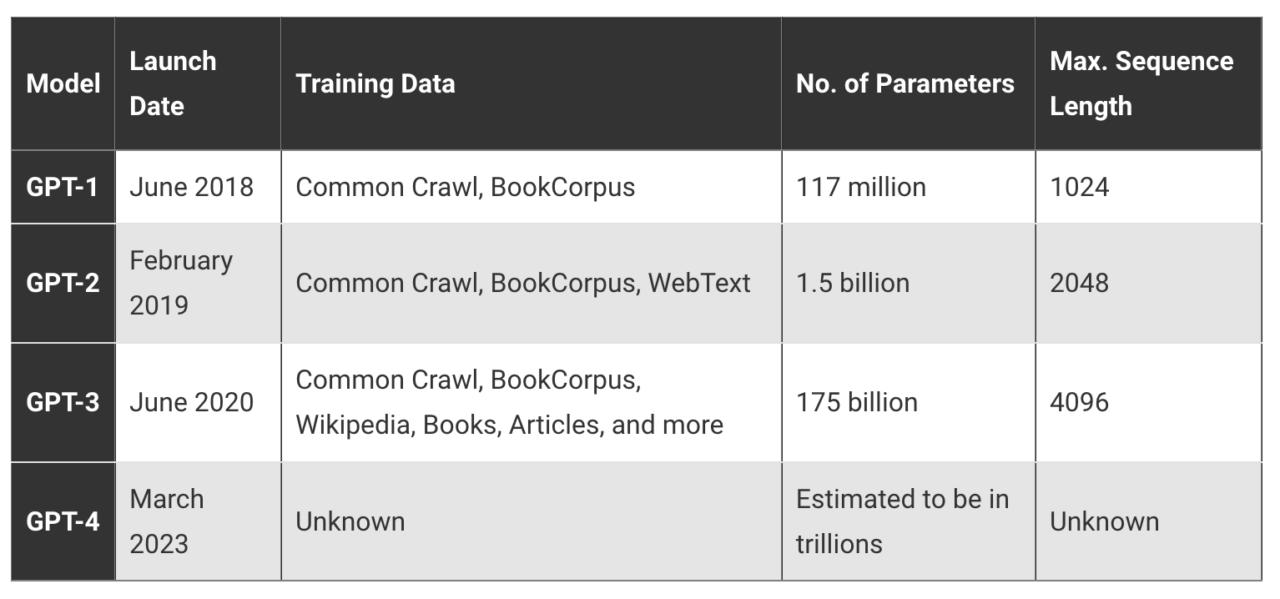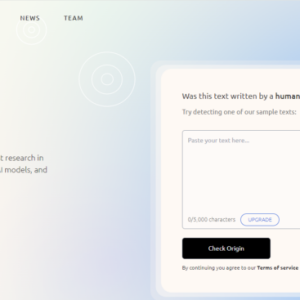In the ever-evolving landscape of technology, artificial intelligence has emerged as a game-changer in various industries. Among them, marketing has witnessed a significant shift due to the integration of AI systems. As we look towards the future, it becomes increasingly apparent that certain jobs within the marketing sector will be replaced by AI by 2023. With the ability to analyze vast amounts of data, personalize customer experiences, and automate repetitive tasks, AI-powered marketing technologies are poised to revolutionize the way companies interact with their target audience. In this article, we will explore some of the key jobs that are likely to be replaced by marketing AI in the near future, and the implications it may have on the workforce.
- Free AI Content Generator: Free Tools and Trials to Generate Articles
- 7 Best Summary Generator Tools to Help Clean Up Your Writing
- ChatGPT for Local SEO: 6 Ways To Boost Your Business
- A Genuine Screpy Review: Boost Your Website Traffic With An AI Tool
- ChatGPT for Trading and Investors: 6 Best Practices & Limitations of Using The AI Chatbot
In recent years, artificial intelligence’s impact on various industries, including marketing, has been undeniable. Marketing AI is a transformative way to approach existing marketing strategies by using advanced technology.
You are viewing: Jobs That Will Be Replaced by Marketing AI in 2023
In this blog post, we will explore the role of marketing AI and discuss how it is changing the landscape of the industry. While some marketing jobs may be replaced by AI, it is essential to understand the potential benefits and limitations of this technology.
With that said, let’s delve into the world of AI-driven marketing strategies, automation and the future possibilities that lie ahead.
The Surge of AI in Marketing
In June of 2018, we saw the first version of ChatGPT come to light – GPT 1. Fast forward five years later, and we have GPT 4, which has marked a huge progress point of innovation through AI:

Alright, let’s not get too scared here. We’re not living in The Terminator yet:
![Terminator [DVD] [1984] - Best Buy](https://external-content.duckduckgo.com/iu/?u=https://pisces.bbystatic.com/image2/BestBuy_US/images/products/2723/27237209_so.jpg)
We’re a long way from AI completely replacing human beings, but a lot of menial and mundane tasks that we do as marketers are rapidly being replaced by AI.
The integration of AI into marketing processes is already underway, with major players like Google and Meta utilizing machine learning algorithms to optimize advertising campaigns. These advancements have reduced the reliance on human intervention and showcased the potential for AI to revolutionize marketing operations.
One area where AI is likely to replace human jobs in the long term is the execution of work on paid media. However, this should not be seen as a cause for alarm but rather as an opportunity for professionals to adapt and acquire new skills. As AI continues to evolve, there will be a shift in job requirements, prompting individuals to reskill and explore new avenues within the marketing industry.
Related Content: Using Chatbots and Generative AI for Sales Growth
The Role of Creativity and Ideation
While AI may replace certain tasks, the creativity and ideation aspect of marketing will still require human input. Marketing platforms often prioritize their own interests over what is best for individual businesses. This is where human marketers can leverage their creativity and critical thinking to bridge the gap and ensure optimal outcomes.
AI tools can play a significant role in content ideation, providing marketers with a wealth of ideas based on keyword analysis and other parameters. These tools streamline the process, allowing marketers to save time and focus on refining the ideas generated by AI.
However, it is crucial to note that AI-generated content can result in duplicate content issues, which can impact search engine rankings. To overcome this, marketers must carefully guide AI tools, checking for plagiarism and making substantial tweaks to ensure content quality and uniqueness. (Read more about the limitations of ChatGPT for content creation here.)
See more : ChatGPT & Advanced Prompt Engineering: Driving the AI Evolution
While AI tools can take marketers a long way in content creation and topic generation, they still require human intervention to achieve exceptional results.
Human creativity is vital for pushing the boundaries of marketing and creating outstanding content that resonates with audiences.
While AI might catch up to human capabilities in the future, for the next 12 months, human expertise and creativity will remain indispensable.
With the aid of content creation AI tools, marketers can streamline processes and delegate repetitive tasks to lower-cost resources. Tools like:
…can assist in various marketing aspects, such as art creation, landing page creation and copywriting, paving the way for increased productivity and effectiveness.
Related Content: 30 Ways to Come Up with Great Ideas for Your Blog Posts
Enhancing Customer Support and Engagement
Customer support is another area where AI can significantly impact marketing.
AI-powered chatbots can provide superior responses by leveraging extensive repositories of information and analyzing patterns. These chatbots can learn from their interactions and continually improve their responses, even to the point of developing a personality that aligns with your branding:

While human intervention will still be required in certain cases, AI tools can handle basic inquiries and provide comprehensive support. Over time, as AI technology advances, it may reduce the need for human involvement in customer support tasks.
We may ultimately find, at first, that the top customer support representatives are kept on in businesses as the “control” amid experimenting with AI, while lower-performing customer support representatives are replaced. As bleak as this seems, it creates the opportunity for people in these types of roles to re-skill and apply their efforts to other types of roles.
Related Content: 6 Customer Service Trends You Can’t Ignore
The Future of AI in Marketing
The future of AI in marketing is likely to be transformative and holds immense potential. While it’s difficult to predict with absolute certainty, the following are several trends and possibilities that we can foresee based on the current state of technology and ongoing developments:
- Hyper-Personalization: AI will allow for even more precise personalization of marketing messages, product recommendations, and customer experiences. The algorithms will become better at understanding individual preferences, behaviors, and needs, enabling a level of personalization that is currently unachievable.
- Sentiment Analysis: AI can analyze social media posts, reviews, and other public comments about a company to determine overall public sentiment, identifying trends and potential issues before they become major problems.
- Real-Time Marketing Decisions: With AI’s ability to process and analyze large volumes of data at high speed, businesses can make real-time decisions based on current data. This could apply to pricing decisions, ad targeting, content recommendations, and more, enabling an adaptability to market and consumer behavior changes like never before.
- Predictive and Prescriptive Analytics: Predictive analytics will become more accurate, and prescriptive analytics, which not only predict outcomes but also recommend actions, will become more prevalent. This will help companies make more informed and proactive decisions in their marketing strategies.
- Ethics and Regulation: As AI becomes more integrated into marketing, there will likely be increased attention to the ethical use of AI, including issues around data privacy and algorithmic bias. This may lead to new regulations that marketers will need to comply with.
As AI technology continues to evolve, we can expect further advancements in business use, such as:
- Visual Creation: Generative Adversarial Networks (GANs), for example, can create original, personalized, high-quality images that are almost indistinguishable from those created by humans.
- Video Content Generation: Currently, AI can assist with editing tasks, such as color grading and clipping, but as the technology advances, we may see AI tools that can generate entire video sequences, complete with special effects.
- Podcast Creation: We can anticipate the future where AI is used to generate podcast content, either by converting written content into human-like speech or by synthesizing completely original content. Additionally, AI can potentially personalize podcast content based on the listener’s interests, behavior, and feedback.
- Customer Journey Mapping: AI can analyze individual customer behavior across multiple channels and touch points to create detailed customer journey maps. This can help businesses understand and optimize the customer experience.
- Price Optimization: AI can analyze market trends, demand patterns, competitor prices, and other factors to determine the optimal price for a product or service.
- Sales Forecasting: With AI, businesses can make more accurate sales forecasts by analyzing a wider range of data and identifying complex patterns that might be missed by traditional methods.
- Supply Chain Optimization: AI can be used to analyze and optimize supply chains, predicting potential disruptions and suggesting alternatives to ensure the efficient delivery of goods.
- Fraud Detection: In areas like online payments and customer data, AI can help businesses identify and prevent fraudulent activity.
- Talent Acquisition and HR: AI can streamline the hiring process by screening resumes and even conducting preliminary interviews. It can also help in employee engagement and performance analysis.
- Product Development: AI can analyze customer feedback, market trends, and competitor products to provide insights for product development.
While these trends paint an exciting picture of the future, it’s essential to note that they also come with challenges. Businesses will need to adapt to rapidly changing technology, invest in AI skills and infrastructure, and navigate potential ethical and regulatory hurdles.
See more : What are the Best Article Generator Software Tools In The Marketplace?
Related Content: How to Implement AI in Your Business: A Step-by-Step Guide
Marketing Functions That Will Be Replaced by AI
While entire marketing roles may not be completely obsolete with the advent of competent AI, a lot of the tasks therein will be.
Let’s take a look at some of the types of marketing tasks that will be automated by AI moving forward:
- Email Campaign Segmentation
- Content Creation
- Ad Targeting and Optimization
- Social Media Posting and Engagement
- A/B Testing
- SEO Optimization
- Customer Segmentation
- Predictive Analytics
- Customer Service via Chatbots
- Personalized Product Recommendations
- Real-time Pricing Adjustments
- Sentiment Analysis
- Conversion Rate Optimization
- Website and App Personalization
- Image and Video Creation
- Voice Search Optimization
- Lead Scoring and Nurturing
- Influencer Identification and Engagement
- CRM Data Cleansing
- Marketing Performance Analytics
- Execution and Optimization of Strategy
- Market Research and Compiling Data

Remember, this is not to say these jobs will fully disappear. AI might automate certain tasks within these jobs, but there can still be a need for human involvement in various capacities.
Human agency will still be highly valuable in the process of generating original ideas, leveraging instinct, and thinking progressively, not just reactively, as AI does.
Also, as technology evolves, it tends to create new jobs that we might not even foresee today.
The Importance of Human Expertise and AI Integration
Successful marketing strategies often require a combination of AI-driven automation and human intuition. By harnessing the power of AI tools and leveraging human expertise, businesses can achieve optimal outcomes. Marketers must continue to refine their skills, adapt to technological advancements, and find ways to integrate AI into their workflows effectively.
In its current form, AI relies on drawing inspiration from human-made content all across the internet. It’s not truly capable (yet) of producing wholly original material. That’s why human agency is still completely valid and necessary.
It’s very likely that AI won’t catch up or exceed human ability for some time, but we ought to be ready if it happens sooner rather than later. Technology tends to evolve exponentially, so the more that it learns from inputs and is further refined, the sooner it will be able to produce content on its own without relying on prior human-made material.
Related Content: AI in Business: How We Use Artificial Intelligence at Our Agencies
Final Thoughts on Jobs that Will Be Replaced by Marketing AI
While certain marketing jobs or tasks within jobs may be replaced by AI in the long run, this should be seen as an opportunity for professionals to embrace new roles and acquire new skills.
The future of marketing lies in finding the perfect balance between AI technology and human ingenuity, allowing businesses to leverage the benefits of AI while delivering exceptional value to their customers.
As we look ahead, the future of marketing with AI holds immense potential. By embracing this technology and continuously refining our skills, we can unlock new opportunities, improve marketing outcomes, and stay at the forefront of this ever-evolving industry.
Repurposed from our Marketing School podcast.
That’s a wrap on “Jobs That Will Be Replaced by Marketing AI in 2023” We hope you’ve found a trove of useful insights and fresh perspectives. Your opinions and ideas matter to us—join the conversation below and share your take! Hungry for more tech insights? Dive into our diverse collection of articles where innovation meets practicality. Discover More AI Softwares.
Stay in the loop with the latest in AI and tech – your journey into the digital future continues at duanetoops.com.
#Jobs #Replaced #Marketing
Source: https://duanetoops.com
Category: AI





